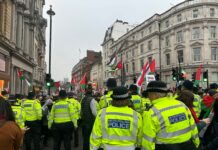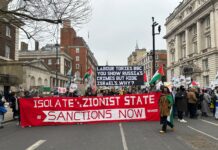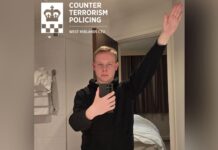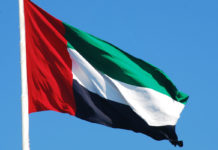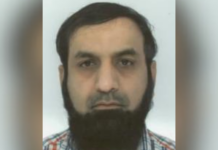The Secretary General of the Muslim Council of Britain (MCB) has said he will wear the poppy “with pride” to salute British soldiers and also as a symbol of peace.
Writing in the London Evening Standard ahead of Remembrance Day commemorations on Sunday, Harun Khan said by wearing the poppy we are recognising the contributions of many, including Muslims, to the Armed Forces.
He wrote that many Muslims had died fighting for Britain in two World Wars and called them “heroes.”
“For me the poppy is a symbol of peace,” he said. “Simultaneously it is worn in recognition of the armed forces’ continued sacrifice and their contribution to this country. We honour the service they give, not the conflicts they are embroiled in. They offer the greatest sacrifice to safeguard and protect the country to which we belong.”

He added: “We are fortunate to live in a democracy where we have the right to disagree with those political leaders who make decisions to go to war, just as we have the right to drop them in the next election; while honouring, respecting and supporting our armed forces all the same.”
But Khan also said that those who choose not to wear the poppy should be respected and not ostracised.
Subscribe to our newsletter and stay updated on the latest news and updates from around the Muslim world!
Poppies are not a common sight among British Muslim communities and it’s probable that only a small minority of Muslims wear them.
They have been used since 1920 to commemorate soldiers who have died in war. Poppies are sold by The Royal British Legion for their “Poppy Appeal”, which supports all current and former British military personnel.
The British Army has a negative reputation among Muslim communities due to its destructive role in several Muslim countries.
It has invaded and occupied two Muslim countries since 2001 – Iraq and Afghanistan. In Iraq It helped start a conflict that would lead to the deaths of around a million people. And in Afghanistan it helped to topple a government which had largely stabilised the nation, an act which led to an inevitable resistance struggle with tens of thousands (if not more) dying. The invasion also destabilised Afghanistan’s neighbour, Pakistan.
The Army, which is made up of professional soldiers and volunteers, was also involved in bombing Libya in 2011 and played a brutal role in quelling colonial insurgencies in Indonesia, Malaysia and Yemen. It also has a historical role in sowing the seeds for devastating conflicts in Palestine and Kashmir.
Many non-Muslims also do not support poppy-wearing. It is especially controversial in the north of Ireland with most Irish nationalists and Catholics refusing to wear one, mainly due to the brutal actions of the British Army during The Troubles.







